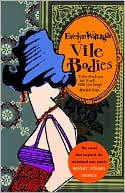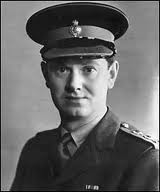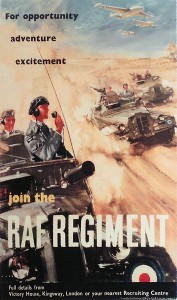“Faster, faster!”
Focused o n the “bright, young things” whose frantic pursuits of pleasure led to constant and ever more frivolous parties in the years leading up to World War II, Vile Bodies offers a satiric look at every aspect of upper class British society. From the hilarious opening chapter, in which an assortment of British travelers is crossing the Channel from France during especially rough weather, through innumerable parties, dances, weekend visits to country houses, automobile races, airplane trips, a movie set, and ultimately, “the biggest battlefield in the history of the world,” Waugh skewers his characters and their values (or lack of values) and, in the process casts a jaundiced eye on society as a whole.
n the “bright, young things” whose frantic pursuits of pleasure led to constant and ever more frivolous parties in the years leading up to World War II, Vile Bodies offers a satiric look at every aspect of upper class British society. From the hilarious opening chapter, in which an assortment of British travelers is crossing the Channel from France during especially rough weather, through innumerable parties, dances, weekend visits to country houses, automobile races, airplane trips, a movie set, and ultimately, “the biggest battlefield in the history of the world,” Waugh skewers his characters and their values (or lack of values) and, in the process casts a jaundiced eye on society as a whole.
Adam Fenwick-Symes, an author living on the largesse of his friends, has been courting wealthy Nina Blount, and their blasé, back-and-forth relationship serves as the loose framework for the novel, which is more a collage of pitch-perfect scenes than it is an organized story. Mrs. Melrose Ape, an evangelist “who had no beard to speak of”; Walter Outrage, “last week’s Prime Minister”; La dy Throbbing and her sister Mrs. Blackwater, whose youthful portrait set a record for rock-bottom prices at Christie’s; Miles Malpractice, Lady Circumference, and a host of other absurd characters populate the novel and keep the novel moving smartly, though not in a straight narrative line. Gradually, as war draws closer and the characters remain resolutely oblivious, the humor darkens, and when war is finally declared, the shock is all the greater because the Prime Minister himself seems not to have known about it.
dy Throbbing and her sister Mrs. Blackwater, whose youthful portrait set a record for rock-bottom prices at Christie’s; Miles Malpractice, Lady Circumference, and a host of other absurd characters populate the novel and keep the novel moving smartly, though not in a straight narrative line. Gradually, as war draws closer and the characters remain resolutely oblivious, the humor darkens, and when war is finally declared, the shock is all the greater because the Prime Minister himself seems not to have known about it.
Waugh’s wit, seen in his sparkling but often mordant dialogue, his inclusion of wicked gossip columns penned by Mr. Chatterbox, his imitations of high flown jargon, and his observations about “progress,” as illustrated by the motorcar and airplane, keep the reader constantly amused. At the same time, Waugh’s preference for the traditional and the civilized over the new and the vulgar is obvious. When the final chapter, the ironically titled “Happy Ending,” is reached, the scene takes place on a battlefield in France, where several familiar characters resolve some of the unfinished business of Waugh’s satire and re-emphasize the ludicrous behavior of so many of Waugh’s people.
Though the characters are superficial and their behavior even more so, as one would expect in a satire, Waugh manages to keep the reader’s interest high through his rapid changes of focus and scene and his keen observations of society in the years just prior to the war. Amazingly, this book was published in 1930, ten years before World War II actually took place, attesting to Waugh’s prescience about where the country was indeed headed and where the biggest battlefield would lie.
Notes: The author’s military photo appears on http://www.telegraph.co.uk
The recruiting poster for the RAF appears on http://en.wikipedia.org
Also reviewed here: PUT OUT MORE FLAGS, BRIDESHEAD REVISITED
